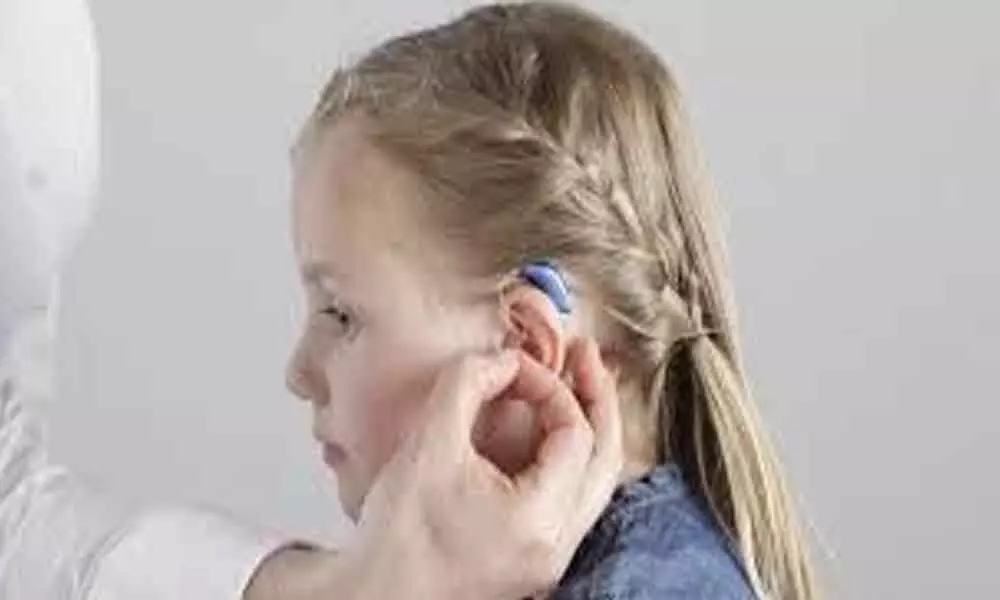Mild deafness may have effect on how brain processes sound
 Mild deafness may have effect on how brain processes sound
Mild deafness may have effect on how brain processes soundMild to moderate hearing loss in early childhood can cause permanent changes to how sounds are processed in the brain -- similar to the effects of deafness since birth -- according to a study.
London : Mild to moderate hearing loss in early childhood can cause permanent changes to how sounds are processed in the brain -- similar to the effects of deafness since birth -- according to a study.
The findings of the study, published in the journal eLife, may have implications for how mild to moderate hearing loss in infants can be managed by healthcare providers. The researchers, including those from the University of Cambridge in the UK, used an electroencephalogram (EEG) to measure the brain responses of 46 children diagnosed with permanent mild-to-moderate hearing loss while they were listening to sounds.
They found that the younger children with such hearing loss showed almost normal brain responses -- similar to those of children with typical hearing. However, the study noted that the brain responses of older children with hearing loss were smaller than those of their normally hearing peers.
To make sure that the gradual worsening in hearing was not due to deterioration in auditory health of the participants, the researchers re-tested a subset of the group of younger children from the original study, six years later.
In the follow-up study, they found that as the children with hearing loss grew older, their brain responses changed. Some responses present when the children were younger, had either disappeared or grown smaller by the time they were older, the researchers said.
The study also noted that there was no evidence of worsening of hearing loss in the children over this time, suggesting that a functional re-organisation of nerves part of the listening circuit was occurring.
"We know that children's brains develop in response to exposure to sounds, so it should not be too surprising that even mild-to-moderate levels of hearing loss can lead to changes in the brain," said Axelle Calcus, lead author of the paper from PSL University in Paris. We need to identify hearing problems at an earlier stage than is currently the case, Calcus added.
"Current screening programmes for newborn babies are good at picking up moderate-to-profound levels of hearing loss, but not at detecting mild hearing loss. This means that children with mild hearing impairment might not be detected until later in childhood, if at all," said Lorna Halliday, co-author of the study from the University of Cambridge in the UK














